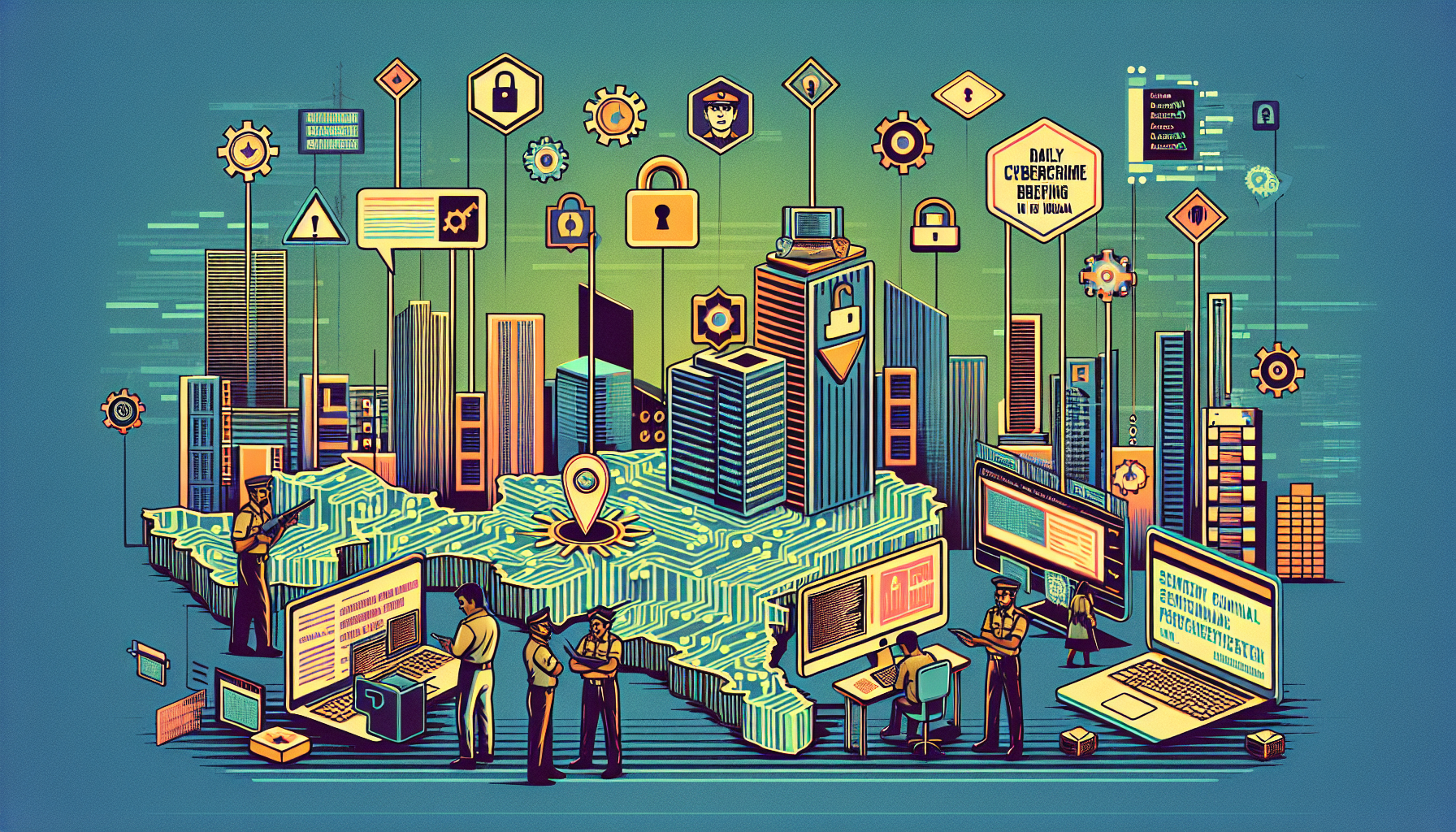Top 10 Daily Cybercrime Brief by FCRF – May 5, 2025
The daily cybercrime briefing by the FCRF on May 5, 2025, brings attention to several significant cybercrime incidents across India. These events highlight the growing threat posed by online fraud and the persistent efforts by law enforcement agencies to combat cybercriminal activities.
Major Cybercrime Incidents Reported
Student Loses ₹43 Lakh to Skype Scammers
A management student recently became a victim of a sophisticated scam involving impersonation of government officials. The fraudsters pretended to be officers from the Central Bureau of Investigation (CBI) and contacted the student over Skype. Using fear and deception, they convinced the victim to transfer a total of ₹43 lakh to various accounts controlled by the scammers.
This case sheds light on how cybercriminals exploit popular communication platforms like Skype to deceive individuals. It also demonstrates the importance of verifying the identity of unknown callers, especially when they claim to represent official agencies.
Tripura Police Freeze Over 16,000 Accounts Linked to Cyber Fraud
In a significant crackdown, the Tripura police successfully identified and froze 16,486 bank accounts suspected to be involved in cyber fraud. This large-scale operation was carried out following a detailed investigation into various reported incidents of online scams and financial frauds.
The freeze on these accounts is expected to disrupt the flow of illicit money and help in the further investigation of the linked cybercrime cases. Authorities are also working to raise awareness about cybersecurity to prevent future incidents.
Understanding Cybercrime and Its Impact
Cybercrime refers to illegal activities carried out using computers or the internet. These crimes include hacking, online scams, identity theft, phishing, and financial fraud. With increasing internet usage, cybercrime has become a serious threat to individuals, businesses, and governments alike.
Common Types of Cybercrime
- Phishing Scams: Fraudulent messages pretending to be from legitimate organizations that try to steal personal information.
- Identity Theft: Stealing someone’s personal data to commit fraud or other crimes.
- Online Fraud: Deceptive schemes to trick victims into transferring money or revealing sensitive information.
- Hacking: Unauthorized access to computers or networks to steal data or cause damage.
- Ransomware: Malicious software that locks a victim’s files until a ransom is paid.
The Growing Threat of Telecommunication Scams
Scams over platforms like Skype, WhatsApp, and phone calls have become increasingly common. Criminals often impersonate government officials or representatives from trusted companies to manipulate victims into cooperating. These scams usually involve threats or promises that pressure individuals to send money or share personal data.
How to Protect Yourself from Cybercrime
Awareness and cautious behavior are the best defenses against cybercrime. Here are some essential tips to stay safe online:
- Verify Identities: Always confirm the identity of anyone contacting you, especially if they claim to be from government or financial institutions.
- Use Strong Passwords: Create unique, complex passwords for your online accounts and avoid using the same password across multiple sites.
- Enable Two-Factor Authentication: This adds an extra layer of security by requiring a second form of verification.
- Be Wary of Suspicious Links and Calls: Do not click on unknown links or provide sensitive information during unsolicited calls or messages.
- Regularly Monitor Bank Statements: Keep an eye on your financial transactions to quickly detect any unauthorized activity.
- Keep Software Updated: Regular updates help protect your devices from security vulnerabilities.
Role of Law Enforcement in Combating Cybercrime
Law enforcement agencies like the Tripura police and the Central Bureau of Investigation are actively working to track down cybercriminals and bring them to justice. Their efforts include monitoring suspicious online activity, freezing fraudulent accounts, and educating the public about online safety.
Such coordinated actions are crucial in reducing the impact of cybercrime and maintaining public trust in digital platforms.
Conclusion
The cybercrime incidents highlighted in the May 5, 2025 briefing by FCRF emphasize the urgent need for vigilance and proactive measures in the digital age. With cybercriminals constantly evolving their tactics, individuals and organizations must stay informed and adopt effective security practices.
By understanding common cyber threats and following basic safety tips, everyone can contribute to making the internet a safer place. Meanwhile, law enforcement continues to play a vital role in identifying, preventing, and prosecuting cybercrime.

Leave a Reply